 Your new post is loading...
 Your new post is loading...

|
Scooped by
Gust MEES
|
What do Pied Piper and blockchain tools have in common? Both are always “coming soon.”
By now most of us are familiar with blockchain, the technology underpinning cryptocurrencies like Bitcoin and Ethereum. Outside of cryptocurrency, blockchain has many purported use cases in scenarios that require an immutable ledger.
Rhetoric has elevated blockchain to godly status, labeling it as a bleeding edge technology poised to disrupt all facets of life, from voting, to smart guns, health data, stock trading, international shipping, and beyond.
We’ve seen a ton of other innovative blockchain ideas too, yet many are unproven or simply hypothetical. So, the question is, what projects are successfully implementing blockchain in practice?
In this article we’ll strive to separate fact from fiction by showcasing 5 living projects that are actually using blockchain, with real world results. We’ll gauge the viability of such projects, and see how proven use may affect the global climate and attitude toward blockchain adoption. Learn more / En savoir plus / Mehr erfahren: https://www.scoop.it/t/21st-century-learning-and-teaching/?&tag=blockchain

|
Scooped by
Gust MEES
|
According to a new report by the Joint Research Centre (JRC), the European Commission’s science and knowledge service, Blockchain will end paper based certificates, automate the award, recognition and transfer of credits, increase learner ownership and control over their own data, reduce institutional data costs and risk–but only if open standards are adopted. Learn more / En savoir plus / Mehr erfahren: https://www.scoop.it/t/21st-century-learning-and-teaching/?&tag=blockchain

|
Scooped by
Gust MEES
|
Self-sovereign identiy explained
This concept is called self-sovereign identity. Self-sovereign identity starts with the notion that we all are the makers of our own identity, online and off. Because they do not rely on any centralized authority, self-sovereign identity systems are decentralized, mirroring the way identity works in real life.
Offline, our interactions flexibly support the use of attributes and credentials from numerous third parties, all presented by the very person they’re about, typically by taking those credentials out of a wallet or purse and presenting them to someone else to verify. For example, take a driver’s license. States issue it as a credential that you’re authorized to drive. But, it’s useful for a lot more. When you show up at a bar and the bartender wants proof you’re over 21, you show them your driver’s license.
How blockchain can solve the identity dilemmaSelf-sovereign identity systems use blockchains – distributed ledgers – so that decentralized identifiers can be looked up without involving a central directory. Blockchains don’t solve the identity problem by themselves, but they do provide a missing link that allows things we’ve known about cryptography for decades to suddenly be used. That allows people to prove things about themselves using decentralized, verifiable credentials just as they do offline. Learn more / En savoir plus / Mehr erfahren: https://www.scoop.it/t/21st-century-learning-and-teaching/?&tag=blockchain

|
Scooped by
Gust MEES
|
RegTech 2.0
During the first phase of RegTech, startups focussed more on the technology to drive compliance use cases and were less conversant with the nuances of the regulations in a holistic manner. This lack of understanding of regulatory complexities by
RegTech startups proved a significant challenge for banks wishing to work with them. RegTech firms in RegTech 2.0 are expected to collaborate more, with banks, regulators and domain experts, to
demonstrate their offerings’ success far more quickly.
Also, as offerings in the next phase evolve from niche propositions to broader compliance propositions, they are in far more need of active support from regulators and industry consultants.
The market of regulators and central banks around the world are also struggling with the data deluge and supervision of new entrants in the banking industry.
The entire lifecycle of policy making, enforcement and supervision is ripe for disruption with the use of advanced technology. Startups would need to be patient in handling the bureaucracy of state-run organizations and even longer sales cycles. Startups
would also need to improve their knowledge of regulators’ underlying objectives and demonstrate unambiguously how their solutions can help the regulators do a better job than the status quo.
Equipped with past learnings and strong support from regulators and governments across the world, RegTech 2.0 is at an inflexion point for a new era of efficient and effective compliance powered by technology.
Learn more / En savoir plus / Mehr erfahren: https://www.scoop.it/t/21st-century-learning-and-teaching/?&tag=blockchain https://www.scoop.it/t/21st-century-learning-and-teaching/?&tag=AI https://www.scoop.it/t/luxembourg-europe/?&tag=FinTech https://www.scoop.it/t/luxembourg-europe/?&tag=LHoFT

|
Scooped by
Gust MEES
|

|
Scooped by
Gust MEES
|
Microsoft is out to prove blockchain naysayers wrong. In an effort to show the potential of the technology beyond its applications in cryptocurrency, the Redmond giant has announced plans to use blockchain tech as the foundation for storing and processing digital identity data.
Following a collaboration with the Decentralized Identity Foundation (DIF), Microsoft has revealed its plans to rely on blockchain technology to solve some of the challenges we face when managing our identities and personal data digitally, such as improving privacy and security across the physical and digital world.
“We believe it is essential for individuals to own and control all elements of their digital identity,” the company said in a blog post. “Rather than grant broad consent to countless apps and services, and have their identity data spread across numerous providers, individuals need a secure, encrypted digital hub where they can store their identity data and easily control access to it.”
To this end, the company is developing an off-chain solution – akin to the Lightning Network – that will allow it to process massive volumes of ID data without congesting the blockchain network. Learn more / En savoir plus / Mehr erfahren: https://www.scoop.it/t/21st-century-learning-and-teaching/?&tag=Digital+Identity https://www.scoop.it/t/21st-century-learning-and-teaching/?&tag=blockchain
This seminal essay by Pierre Lévy, a thought leader in the field of collective intelligence states, "the next platform weaves five functions together: curation, creation, communication, transaction and immersion.
Via Klaus Meschede

|
Scooped by
Gust MEES
|

|
Scooped by
Gust MEES
|
Unless you’ve been hiding under a rock, I’m sure you’ve heard of Bitcoin and blockchain. After all, they are one of the most trending topics these days — the ultimate buzzwords of the year. Even people who’ve never mined cryptocurrency or understand how it works, are talking about it. My non-techie friends are completely at loss … Learn more / En savoir plus / Mehr erfahren: https://www.scoop.it/t/21st-century-learning-and-teaching/?&tag=blockchain

|
Scooped by
Gust MEES
|
It’s long been argued that blockchain – the underlying DNA of cryptocurrency Bitcoin – could transform the way financial services companies do business, but how close is it to being used day-to-day?
When it comes to some aspects of the financial services industry, adoption is still a little way off.
There’s no doubt that blockchain’s real-time characteristic and ability to act as a public ledger of all transactions could revolutionise many parts of financial services, reducing risks and bringing cost savings among other benefits. Learn more / En savoir plus / Mehr erfahren: http://www.scoop.it/t/21st-century-learning-and-teaching/?&tag=blockchain

|
Scooped by
Gust MEES
|
Was ist eine Blockchain?
Eine der seltenen Definitionen der Blockchain, die mit relativ wenigen Fremdworten auskommt, lautet: „Blockchains sind spezielle Datenbanken, die Transaktionsdaten ohne eine zentrale Kontrollinstanz, ohne die Notwendigkeit gegenseitigen Vertrauens und mit vollkommener Transparenz verwalten können.“
Klingt noch ziemlich abstrakt. Anschaulicher und stark vereinfacht wird die Blockchain vom Techexperten Jamie Skella beschrieben. Sein Blockchain-Artikel ist vor ein paar Wochen bei LinkedIn erschienen und hat sich in Windeseile im Internet verbreitet. Skella sagt, man könne sich eine Blockchain wie ein Kassenbuch vorstellen: Sobald zwischen einem Absender und einem Empfänger eine Datentransaktion stattfindet, wird in das Kassenbuch eine neue Position eingetragen. Learn more / En savoir plus / Mehr erfahren: http://www.scoop.it/t/21st-century-learning-and-teaching/?&tag=blockchain

|
Scooped by
Gust MEES
|
Die Blockchain wird meist in Verbindung mit Bitcoins gebracht. Ganz falsch ist der Zusammenhang auch gar nicht. Zwar ist die Anwendung der Blockchain-Methode generell auch in anderen Bereichen möglich, in einer offenen Blockchain erfolgt die Validierung jedoch grundsätzlich durch das sogenannte „Mining“. Und das wiederum ist nur mit Bitcoins möglich, da sich der nicht unerhebliche Validierungsaufwand für potenzielle Miner schlicht nur durch die anteilige Entlohnung durch Bitcoins lohnt. Gratis würde wohl kaum jemand seinen Rechner und die entsprechende Rechenleistung zur Verfügung stellen.
Lediglich in geschlossenen Systemen, etwa zwischen Banken gibt es auch andere Validierungsmethoden. Gerade Banken betreiben aktive Forschungen auf dem Gebiet der Blockchain.
Besonders nützlich für die Geldinstitute ist ein geschlossenes System etwa bei der Übertragung von Wertpapieren zwischen den verschiedenen Häusern. Das die Blockchain auf längere Sicht also die Banken abschaffen wird, stimmt deshalb nicht.
Das mag vielleicht auch daran liegen, dass für die Blockchain-Technologie ein relativ fundiertes Wissen benötigt wird. Die Methode kann also, zumindest zum aktuellen Zeitpunkt, mit Nichten von jedermann verwendet werden. Auch Experten gibt es auf diesem Gebiet noch sehr wenige. Learn more / En savoir plus / Mehr erfahren: http://www.scoop.it/t/21st-century-learning-and-teaching/?&tag=blockchain

|
Scooped by
Gust MEES
|
|

|
Scooped by
Gust MEES
|
Brandman University is taking a new approach to adult education, focusing on students' competencies so that they can apply their work experiences to speed their path to graduation.
Brandman already is working with companies, including Walmart and Discover, to offer employee-education programs. The Irvine, California-based nonprofit university's competency-based programs make it easier for working adults to earn college degrees and advance their careers.
At most conventional colleges, students must fulfill prerequisite courses to earn admission and a set of required courses to earn a degree. Under the Brandman approach, if an applicant has, say, a 20-year career in finance but no formal coursework in finance, the university's “adaptive learning engine” can detect her prior knowledge and tailor the curriculum to ensure that she focuses on new material. Brandman's first graduate completed a bachelor's of business administration degree in 18 months.
The technology that makes the Brandman model possible includes a cloud software platform developed by edtech startup N2N Services. On the platform, the university developed a game-based learning application that offers students a series of tests to demonstrate their competency. As students pass each test, they’re automatically moved to the next level of the program. Learn more / En savoir plus / Mehr erfahren: https://www.scoop.it/t/21st-century-learning-and-teaching/?&tag=blockchain

|
Scooped by
Gust MEES
|
Blockchain is often touted as a world-changing technology and in many ways, it is. However, it isn’t necessarily the cure-all panacea for the world’s problems that many evangelists would have you believe.
Here’s a breakdown of some of the issues with blockchain that anyone thinking of using it should understand. Starting with perhaps the biggest…
Blockchain has an environmental cost
At least, the way it is being used today, it does. Blockchain relies on encryption to provide its security as well as establish consensus over a distributed network. This essentially means that, in order to “prove” that a user has permission to write to the chain, complex algorithms must be run, which in turn require large amounts of computing power. Of course, this comes at a cost. Taking the most widely known and used blockchain as an example – Bitcoin – last year it was claimed that the computing power required to keep the network running consumes as much energy as was used by 159 of the world’s nations.
Yes, Bitcoin’s blockchain is a hugely valuable network – with a current market capacity at the time of writing of over $170 billion – so sophisticated and computationally intense security is essential. Smaller scale blockchains – such as those that an organization may deploy internally to securely monitor and record business activity – would consume a fraction of that. Nevertheless, it’s an important consideration and the environmental implications as well as the energy costs can’t be ignored.
Lack of regulation creates a risky environment
Read more in the article... Learn more / En savoir plus / Mehr erfahren: https://www.scoop.it/t/21st-century-learning-and-teaching/?&tag=blockchain

|
Scooped by
Gust MEES
|
Trending: Yes, there’s a crisis of trust in journalism. But it’s inside newsrooms, too.
That isn’t why Dicker is interested in it, however. Much like Civil, a blockchain-based media platform that wants to use the technology for journalism, Dicker sees Po.et as a way of using blockchain to empower individual content creators—not just journalists or news organizations, but anyone who creates words or images or music or video for almost any purpose, including advertisers and brands. In effect, he says Po.et is trying to build an open-source, blockchain-based licensing system for content.
To try to understand a bit more about what this means, and why Dicker decided to throw in the towel on a promising career at a traditional media entity, I spoke with him recently by phone. What follows is a transcript of some of that discussion, edited for length and clarity. Learn more / En savoir plus / Mehr erfahren: https://www.scoop.it/t/21st-century-learning-and-teaching/?&tag=Curation https://www.scoop.it/t/21st-century-learning-and-teaching/?&tag=Content+curation https://www.scoop.it/t/21st-century-learning-and-teaching/?&tag=press

|
Scooped by
Gust MEES
|
Wealth managers will again find themselves dedicating much of 2018 to adopting new compliance requirements. With this comes associated increases in operating costs. However, regtech will make the process more cost-efficient, according to GlobalData Financial Services
In 2018 the wealth management sector will face another wave of regulatory changes that aim to make the industry more transparent and restore consumer confidence. #
In Europe, MiFID II entered into force in January 2018 and the General Data Protection Regulation will be effective from May. On the other side of the ocean, the US financial services industry is getting ready for the Fiduciary Rule, which is due to enter into force in 2019.
Across the board, as of January 2018 all countries that signed the OECD’s agreement on automatic exchange of information must now be fully compliant with the Common Reporting Standard and report on accounts held by their residents.
Regulation has weighed heavily on wealth managers’ operating costs in the past few years. Learn more / En savoir plus / Mehr erfahren: https://www.scoop.it/t/21st-century-learning-and-teaching/?&tag=blockchain https://www.scoop.it/t/21st-century-learning-and-teaching/?&tag=AI https://www.scoop.it/t/luxembourg-europe/?&tag=FinTech https://www.scoop.it/t/luxembourg-europe/?&tag=LHoFT

|
Scooped by
Gust MEES
|

|
Scooped by
Gust MEES
|
The Blockchain Economy: A beginner’s guide to institutional cryptoeconomics
Chris Berg, Sinclair Davidson and Jason Potts are from the RMIT Blockchain Innovation Hub, the world’s first social science research centre into the economics, politics, sociology, and law of blockchain technology.
The blockchain is a digital, decentralised, distributed ledger.
Most explanations for the importance of the blockchain start with Bitcoin and the history of money. But money is just the first use case of the blockchain. And it is unlikely to be the most important.
It might seem strange that a ledger — a dull and practical document associated mainly with accounting — would be described as a revolutionary technology. But the blockchain matters because ledgers matter.
Learn more / En savoir plus / Mehr erfahren: https://www.scoop.it/t/21st-century-learning-and-teaching/?&tag=blockchain

|
Scooped by
Gust MEES
|
Axa startet als erster Anbieter eine Versicherung auf Blockchain-Basis. Der Abschluss dauere nur wenige Minuten und bei Schadensersatzanspruch übernimmt die Technologie sogar die Auszahlung komplett selbstständig.
Axa setzt als erste Anbieter weltweit auf eine Blockchain-basierte Versicherung. Nutzer können sich mit dem "Fizzy" genannten Angebot für Flugverspätungen entschädigen lassen. Der Abschluss und die Abwicklung eines Vertrages soll vollautomatisch und zeitnah vonstattengehen. Verträge auf Blockchain-Basis werden auch Smart-Contracts genannt und sichern beiden Parteien die Erfüllung der ursprünglich vereinbarten Konditionen ab.
Der Abschluss und die Abwicklung läuft vollständig elektronisch und ist über die Blockchain abgesichert.
(Quelle: Axa ) Kunden haben die Möglichkeit, die Versicherung maximal 15 Tage vor Flugantritt abzuschließen. Zunächst muss der Nutzer hierfür die entsprechende Flugnummer sowie persönliche Angaben übermitteln. Über einen Algorithmus wird dann der entsprechende Tarif berechnet und angezeigt. Bestätigt der Kunde dies nun und willigt in den Vertrag ein, kommt die Blockchain ins Spiel.
Im Falle einer Flugverspätung von mehr als zwei Stunden wird der Nutzer automatisch über seinen Schadensersatzanspruch informiert und der Geldbetrag soll laut Axa binnen einer Woche auf dem angegebenen Kreditkartenkonto des Versicherten eingehen. Weder der Versicherte, noch der Anbieter müssen oder können in diesen Prozess eingreifen.
Learn more / En savoir plus / Mehr erfahren: https://www.scoop.it/t/21st-century-learning-and-teaching/?&tag=blockchain

|
Scooped by
Gust MEES
|
The solution for Smeets and his team though is not to pile on extra layers of authentication, but rather to distribute them. And that's where blockchain comes it. Because the blockchain functions via a distributed and encrypted ledger shared across all of a network's users and devices, it creates a network of authentication that is verifiable and not easily hacked. With blockchain implemented, a device cannot access a network unless it is verified through the entire ledger. In this scenario attacks like Mirai become significantly more difficult, if not impossible, because a hacker would need to modify the entire ledger, and not just the credentials of any one device.
Ericcson Research demonstrated a proof-of-concept of this idea at the 2017 Mobile World Congress in Barcelona this past March. The researchers set up a small WiFi network that used blockchain authentication instead of a typical username/password setup. Learn more / En savoir plus / Mehr erfahren: https://www.scoop.it/t/21st-century-learning-and-teaching/?&tag=blockchain

|
Scooped by
Gust MEES
|

|
Scooped by
Gust MEES
|

|
Scooped by
Gust MEES
|

|
Scooped by
Gust MEES
|
|



 Your new post is loading...
Your new post is loading...

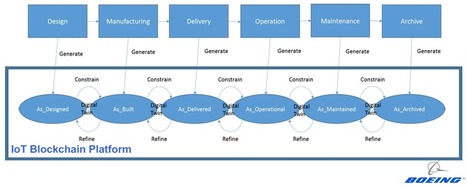

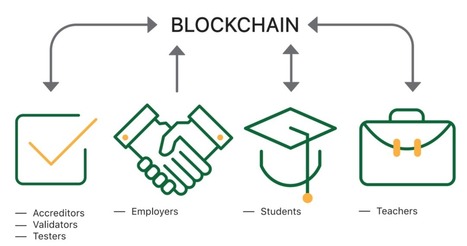


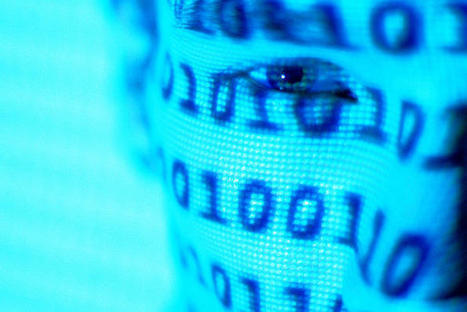
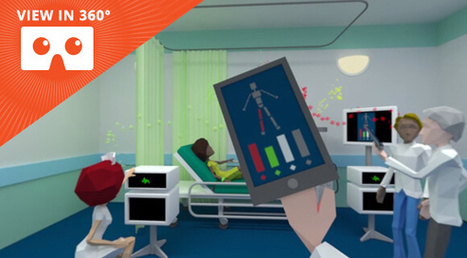
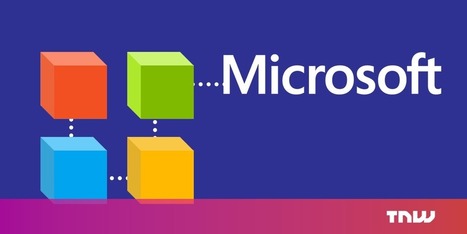


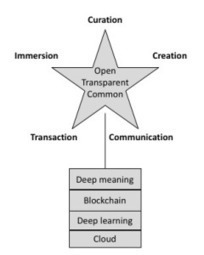


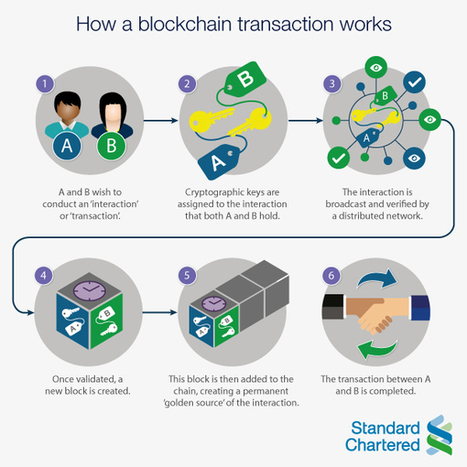

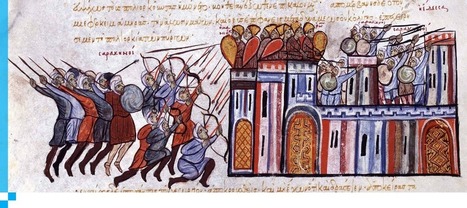
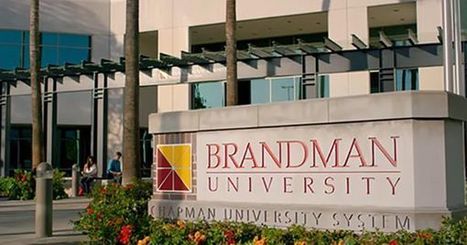



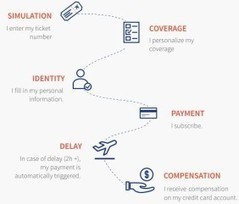

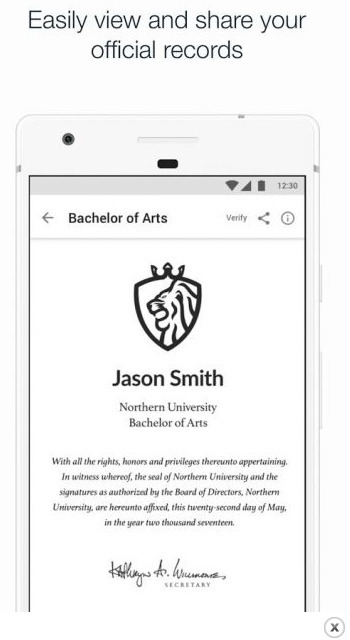

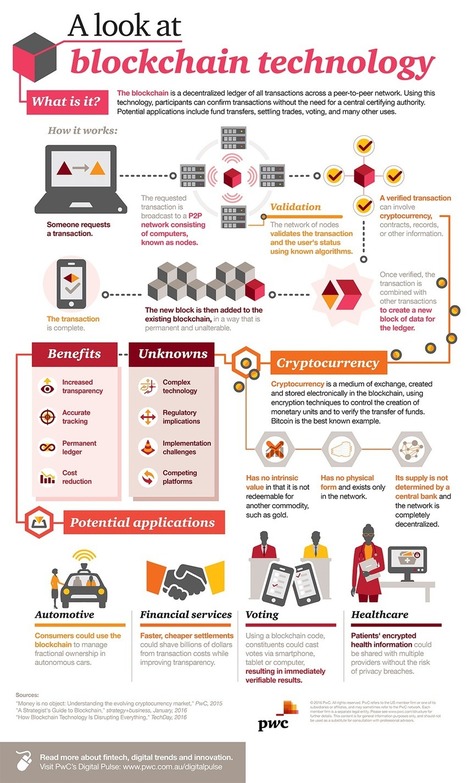






By now most of us are familiar with blockchain, the technology underpinning cryptocurrencies like Bitcoin and Ethereum. Outside of cryptocurrency, blockchain has many purported use cases in scenarios that require an immutable ledger. Rhetoric has elevated blockchain to godly status, labeling it as a bleeding edge technology poised to disrupt all facets of life, from voting, to smart guns, health data, stock trading, international shipping, and beyond. We’ve seen a ton of other innovative blockchain ideas too, yet many are unproven or simply hypothetical. So, the question is, what projects are successfully implementing blockchain in practice? In this article, we’ll strive to separate fact from fiction by showcasing 5 living projects that are actually using blockchain, with real-world results. We’ll gauge the viability of such projects, and see how proven use may affect the global climate and attitude toward blockchain adoption.
1. Arcade City: Peer-to-peer blockchain-based ridesharing
2. Helperbit: Humanitarian fundraising vetted with blockchain
3. Boeing: IoT-driven blockchain unites assembly line operations
4. Medicalchain: Digitize health records and share access on the blockchain
5. CargoConX: A blockchain for the logistics and transport industry